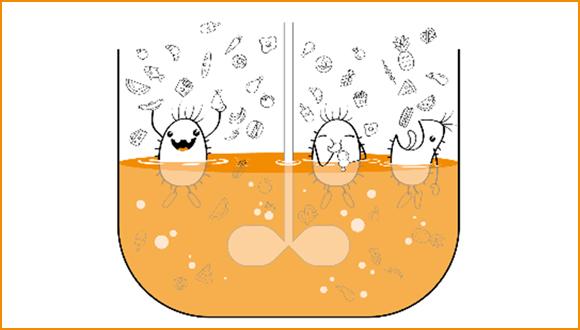דוקטורנטים מספרים - Razan Unis
Single-cell Haloferax mediterranei as an alternative source of animal-free proteins (SCP)
By Razan Unis
Supervisor: Prof. Alexander Golberg
The rapidly increasing world population, death from starvation, civil unrest, malnutrition and related diseases worldwide are intensifying the challenge of providing vital nutritional sources. In particular, animal-free protein poses a problem since essential amino acids cannot be replaced. Agriculture alone cannot meet the high demands of protein required worldwide. The increasing world demand for protein-rich food led to the search for the formulation of alternative protein sources to supplement conventional ones.
I’m Razan Unis, a second year PhD student at Porter School of Environmental Studies and Earth Sciences and the Faculty of Exact Sciences, Tel Aviv University under the supervision of Prof. Alex Golberg. He is advising me in the search for an alternative source of animal-free protein. Single cell protein (SCP) production technologies arose as a promising way to solve the problem of worldwide protein shortage. They evolved as bioconversion processes which turned low value byproducts, often wastes, into products with added nutritional and market value.
Our lab introduces a new source of protein derived from the archaea Haloferax mediterranei, which has several remarkable characteristics: it grows on complex media; is able to use a wide variety of carbon sources; it has higher growth rates; and it has a wide range of salt tolerance. Thanks to all these advantages, it is interesting to expand the knowledge on this organism and to find biotechnological and industrial interest applications. SCP refers to dead, dry microbial cells or total proteins extracted from pure microbial cell culture and is produced using different microorganisms, including bacterium, fungus and algae. Besides high protein content (about 60-82% of dry cell weight), SCP also contains fats, carbohydrates, nucleic acids, vitamins and minerals.
To achieve the goals of SCP technology, work is being undertaken to optimize conditions for growth and productivity of proteins and evaluate their fermentation processes on various kinds of feed, supplemented media, or agricultural and industrial waste. This study is being conducted to determine the chemical composition of proteins, fat, carbohydrates, and amino acids profile, and to assist the physico-chemical properties of the produced proteins. The final product should pass all toxicity tests to be commercialized as a food product. Therefore, we examine SCP safety through in vitro and in vivo assays to test its suitability for human and animal consumption. Hopefully, this will help in the acceptance and practice of this idea worldwide in order to create a better and more sustainable future for everyone.


